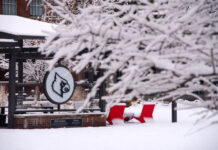LOUISVILLE, Ky. – University of Louisville officials have moved all 270 Miller Hall residents to other housing and determined there are is no need to displace additional students after testing for mold in several other halls this week. The tests were done shortly after university officials decided to close Miller Hall for the rest of the semester due to widespread elevated levels of mold spores.
Miller Hall was closed Oct. 14 so mold remediation experts could clean it thoroughly and search for the source. Residents were moved to other university housing, university-affiliated properties, three hotels on Phillips Lane near campus or, for some local residents, to family homes in the Louisville area. Regular shuttle service and increased security have been arranged for the students at the hotels and affiliated properties.
UofL’s Department of Environmental Health and Safety employees, working with a nationally recognized indoor environmental expert, have been conducting tests in residence halls for the past week. While aspergillus or penicillium-like molds are visible in a few rooms at Threlkeld, Wellness and West Halls, experts believe the issues can be addressed without relocating students. Tests have begun on other housing units.
Rooms with visible mold will be cleaned over the next few days by specially trained crews. Students will not need to leave their rooms for the cleaning.
To control the circulation of mold spores in Threlkeld Hall, UofL has turned off all heating and air conditioning units in the building. Tests conducted shortly after the systems were turned off showed a significant decrease in the amount of mold spores in the air throughout the facility. Plans call for the building to be warmed for the remainder of the fall semester by increasing radiant heat from the building’s water boilers.
University officials said a thorough cleaning or replacement of all heating and air conditioning units in Threlkeld and a few units in the other three halls is necessary and will be completed during the holiday break, Dec. 14 to Jan. 6.
























